Willis “Bing” Davis ’59 sees art everywhere. Hears it too.
“It’s never far from my mind,” he said. “It’s a way of existing and being.”
When he spotted a shredded tire on the side of the interstate, he was reminded of the necklaces an African dancer might wear. So he pulled a u-turn, stopped and tossed the tire – which will someday adorn one of his anti-police brutality masks – into his car.
When, ensconced in his basement workshop, he heard the footsteps of his wife from above as she entered their Dayton gallery, he beat out a rhythm with his fingertips. “Once you get tuned into that, you collect information all the time,” he said.
When, as a high schooler, he saw an iridescent oil slick in a mall parking lot, he knelt to observe the colors, prompting queries from his peers. “It used to bother me when they’d think I was crazy,” he said. But “once you get into that mode of working and thinking, then you make it a part of your life.”
And when he recently entertained a visitor to his gallery and “caught a glimpse of the leaves making patterns in the window,” he did not miss a beat in the conversation. “I’m actually concentrating more and I’m picking up more,” he said.
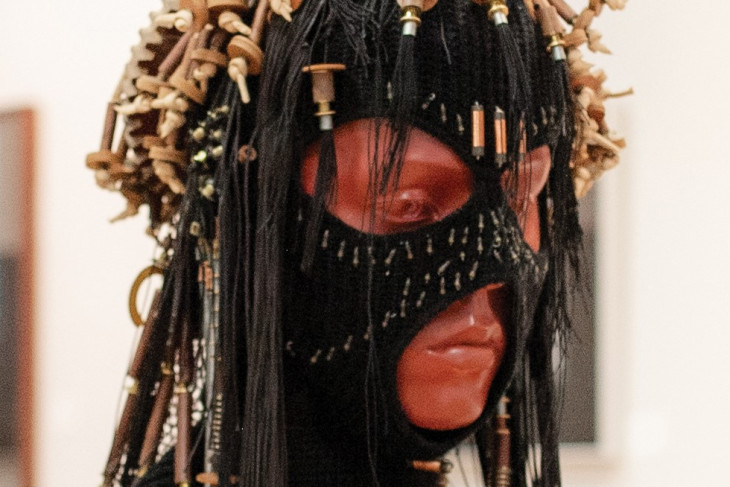
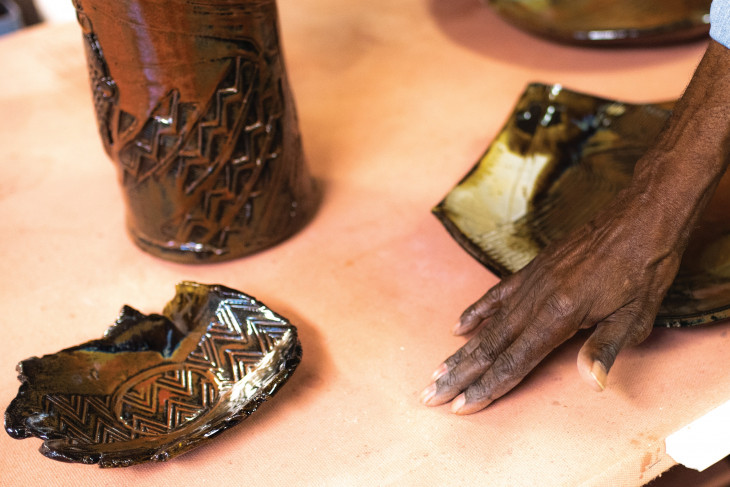
At 83, Davis makes ceramics, paints and sculpts using found objects such as the shredded tire. He learned his broad approach to art from Richard E. Peeler ’49, for whom the DePauw art center is named and who was Davis’s teacher, academic adviser and, when Davis taught at DePauw for six years, his colleague. Peeler, he said, asked the question: “How do you use art to enhance growth?”
Davis’s answer: “Once you open up to it, it’s unlimited what you can do.”
Davis said he will never stop making art. “You don’t do that,” he said, his tone incredulous. “You find time. You stop the other stuff so you have more time to do the art. Because that’s really a lifeline.”
He officially retired from teaching in 1998, but still participates in and sponsors workshops, summer camps and art lessons for children and teens; volunteers for community projects; and operates his gallery. He recently was hired as an aesthetic consultant to place African symbolism on a bridge in Dayton.
He said he wants to stop all those things – but provides no timeline for doing so – and “just enjoy making art and enjoy being alive.”
Here are some of Davis’s other thoughts about art:
IT REFLECTS VALUES: “Art is a reflection of spiritual, cultural and social values of all people,” Davis said. “And so you can look at any culture or any people, and look at the art, their music, their dance and their drama, and you understand their whole way of life.”
IT TEACHES SKILLS: Teaching children art “enhances self-concept and confidence, increases goal setting,” Davis said. A young person who creates art learns critical thinking; creative problem-solving; fluency of thought; instrumental behavior to solve a problem; and assessment and evaluation – “all qualities an individual will need to enhance their success on the job and in life.”
IT PROVOKES ACTION: Art can be an “agent of change,” he said. That’s why much of the art created by this friendly, upbeat man addresses violence. “Sometimes art can say things that you have a hard time saying in words or can stimulate a conversation,” he said. “I want to find as many ways as possible of putting the viewer into the position of thinking and taking action on a serious problem.”
Davis has a series of sculptures labeled as “anti-police brutality masks.” He recently completed “Colin Kaepernick and George Floyd Cushion,” a sculpture that juxtaposes former quarterback Kaepernick’s taking a knee to protest police abuse of Black people with the death of George Floyd, who died when a police officer knelt on his neck. And he is working on a multi-media piece centered on the August 2020 shooting of Jacob Blake in Kenosha, Wisconsin, and the killing of other Black people by police officers.
IT PROMPTS LEARNING: “Clay is still my favorite medium, but I was accustomed to working in and teaching a variety of techniques and a variety of mediums, and I just keep it up professionally,” he said. “So when an idea comes, sometimes I transfer that same idea to a variety of mediums to see the different effects. And sometimes when I get an idea, it already suggests a technique. If I don’t know the technique, I’ll learn it.”
DePauw Magazine
Spring 2021
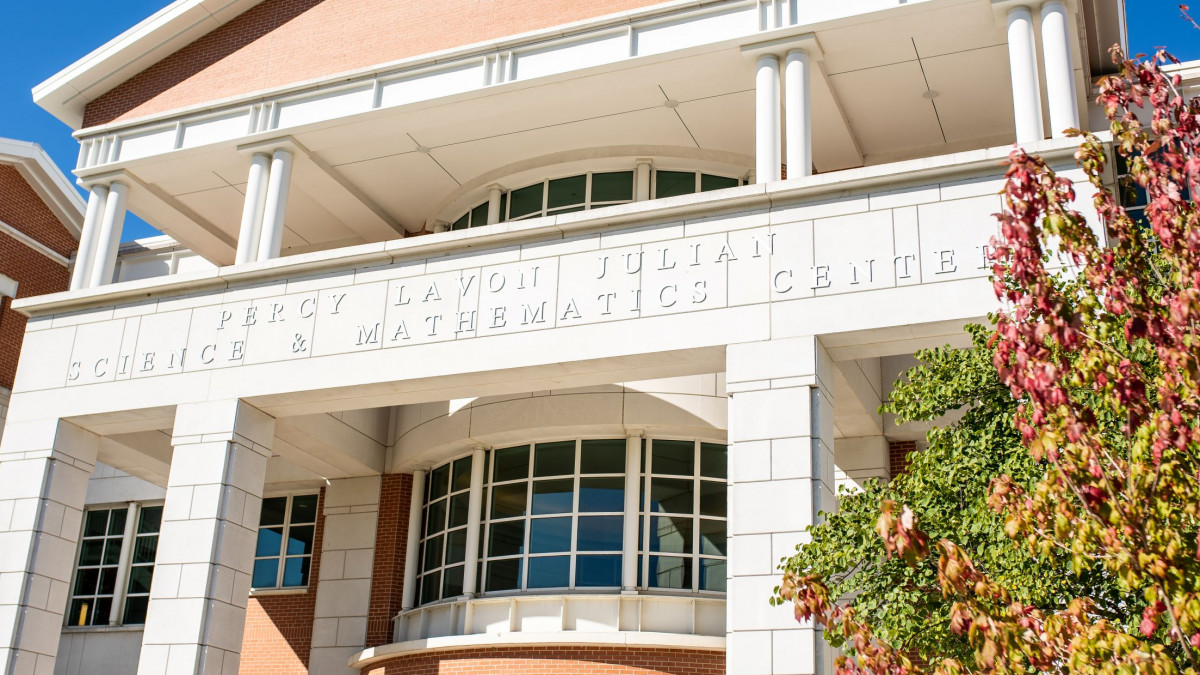 Leaders the World Needs
Leaders the World Needs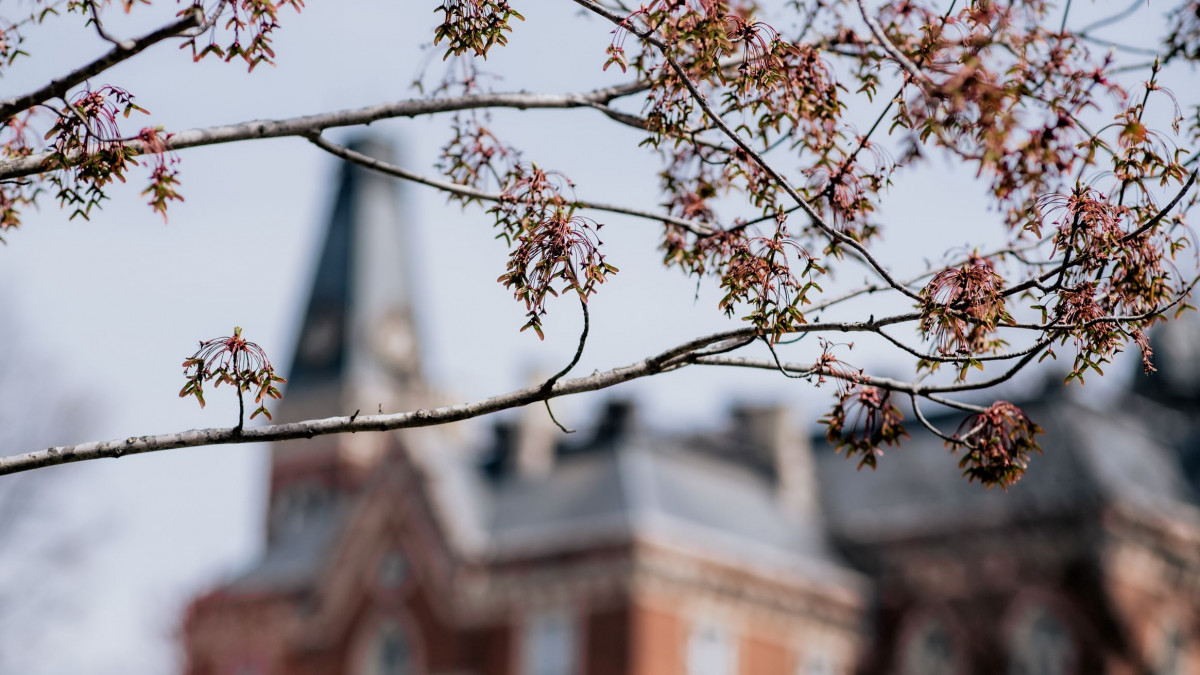 First Person by Nate Spangle ’19
First Person by Nate Spangle ’19  The Bo(u)lder Question
The Bo(u)lder Question 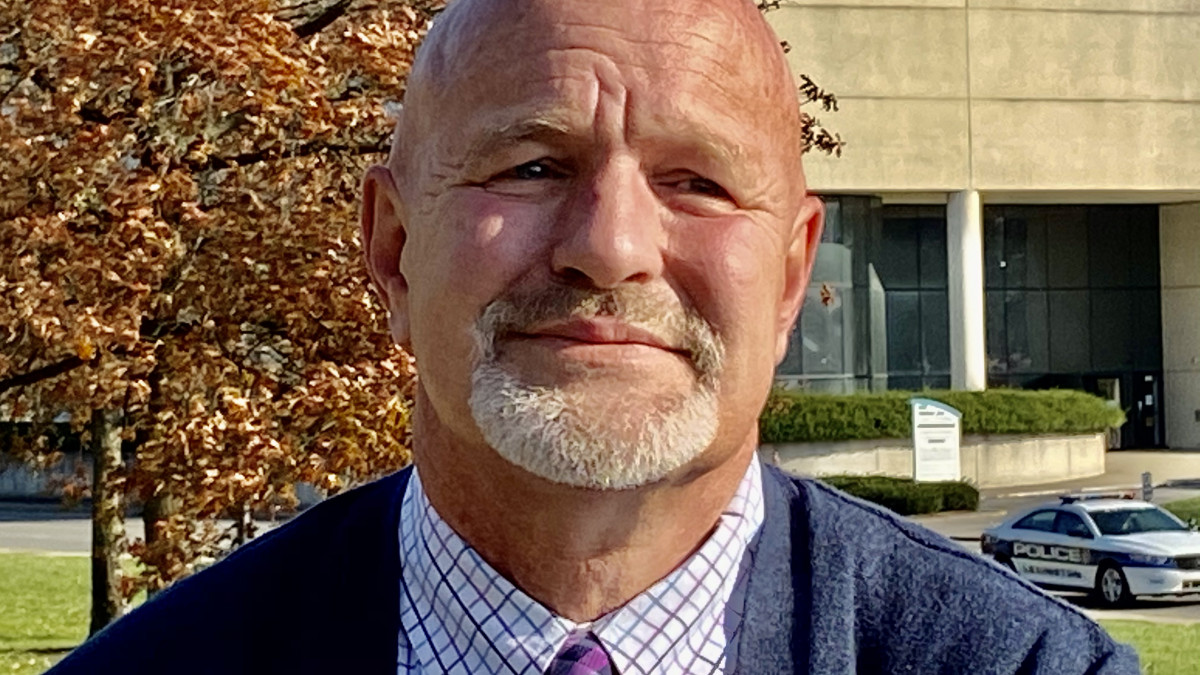 How to reckon with the past
How to reckon with the past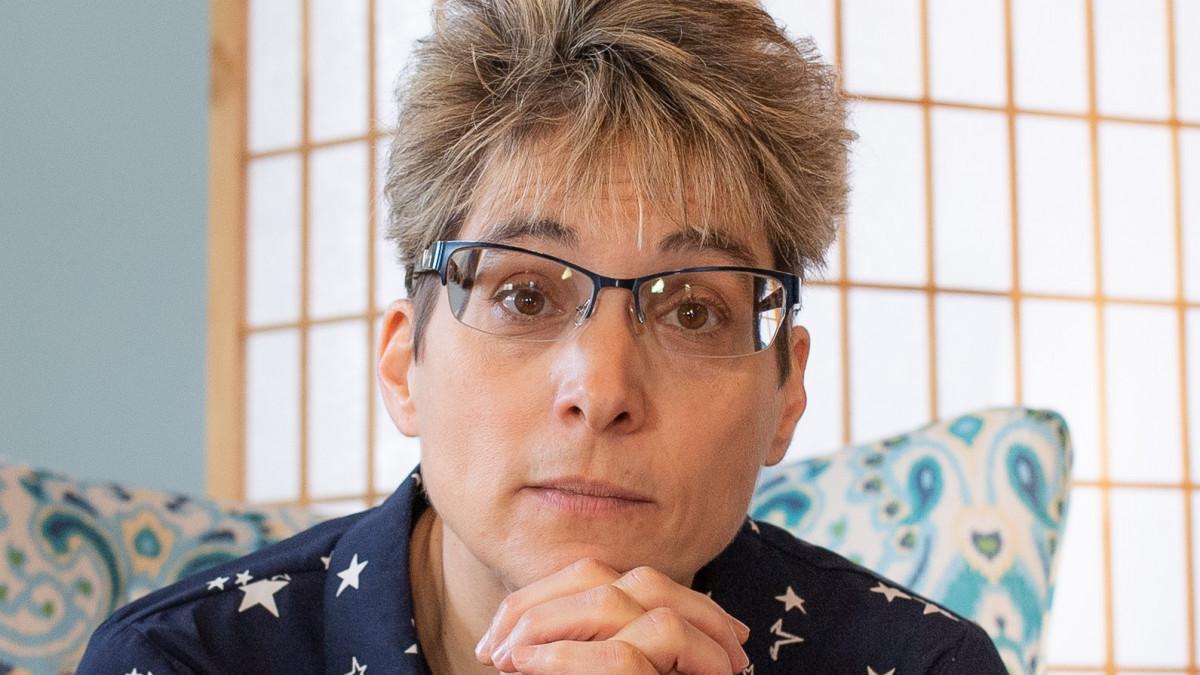 How to die peacefully
How to die peacefully How to be creative in a crisis
How to be creative in a crisis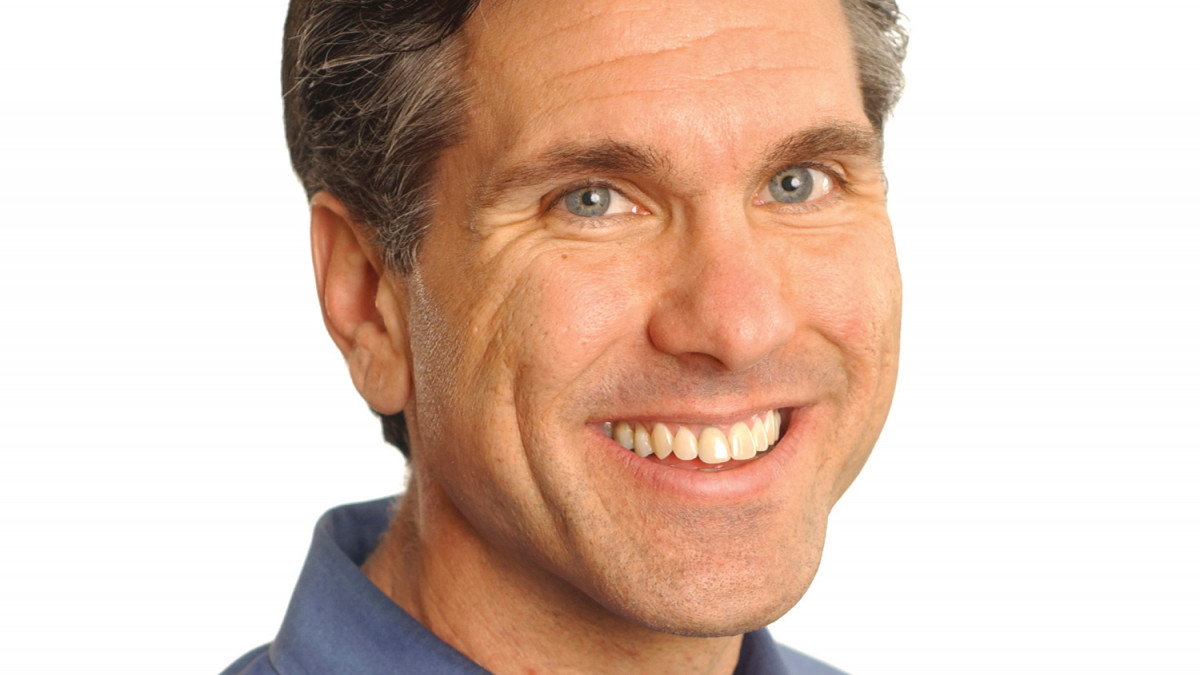 How to do well by doing good
How to do well by doing good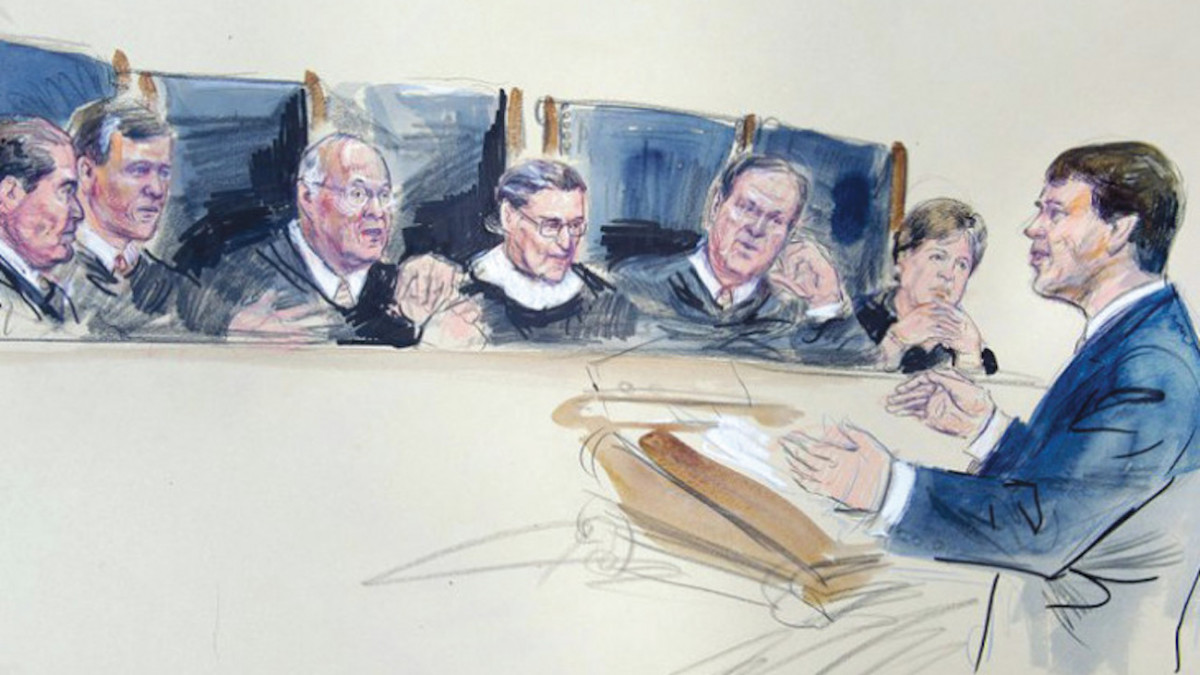 How to argue before the Supreme Court
How to argue before the Supreme Court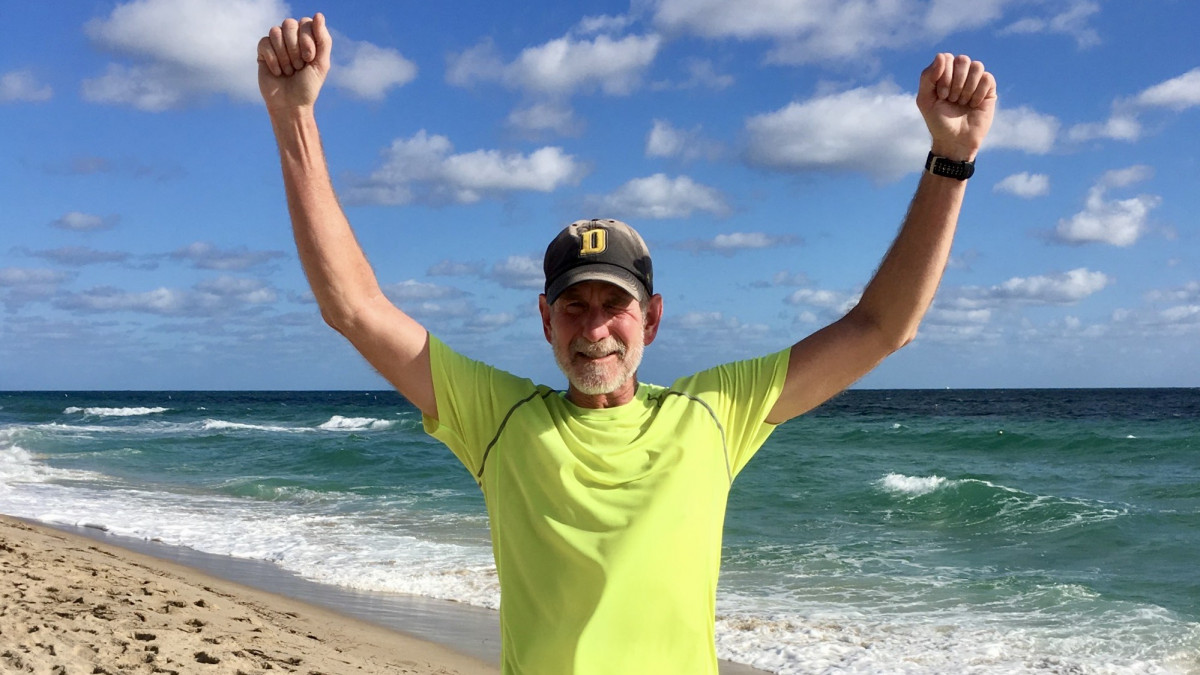 How to run for your life
How to run for your life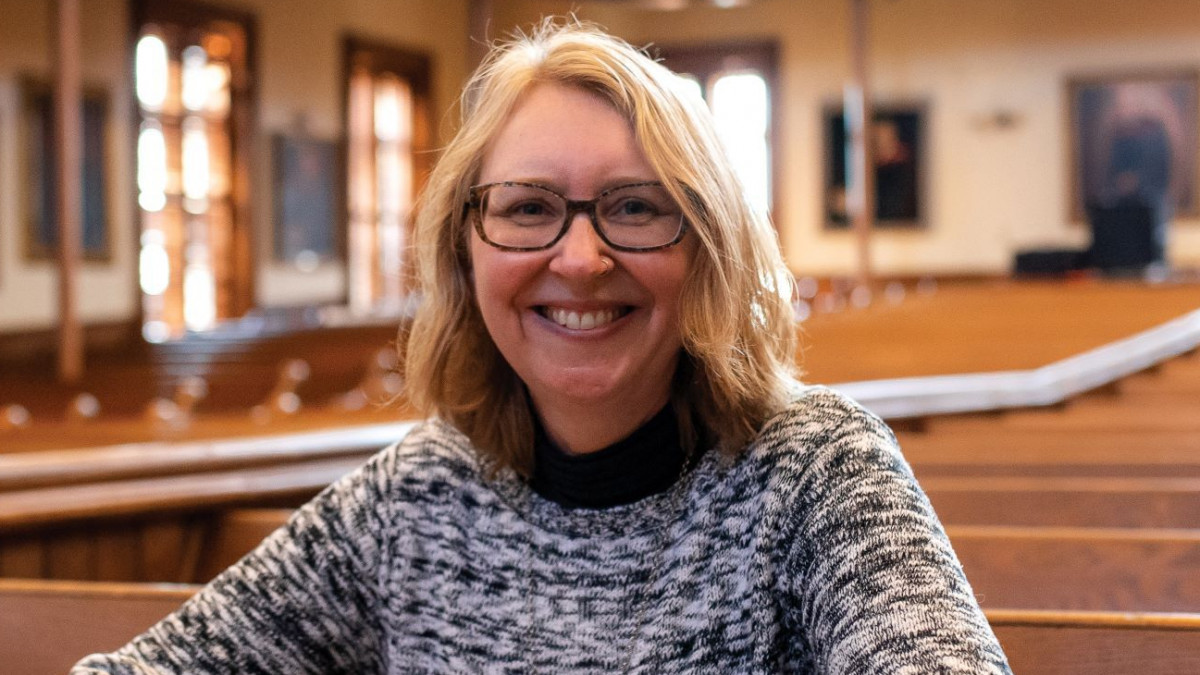 How to write a love letter
How to write a love letter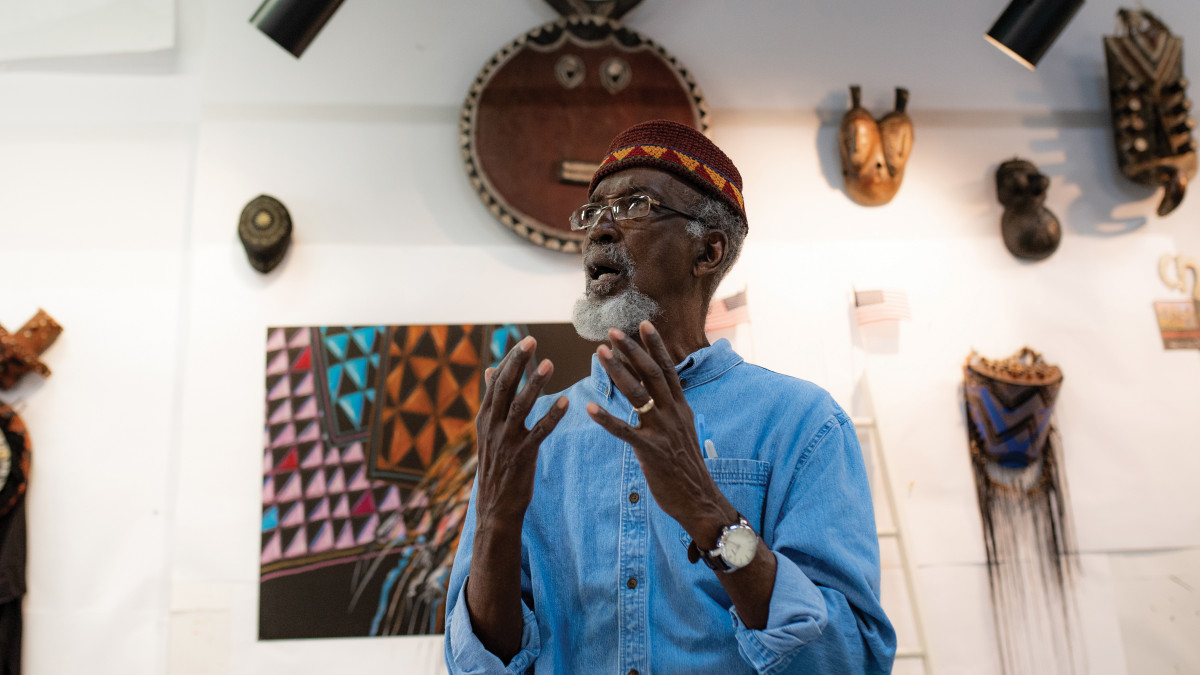 How to create art
How to create art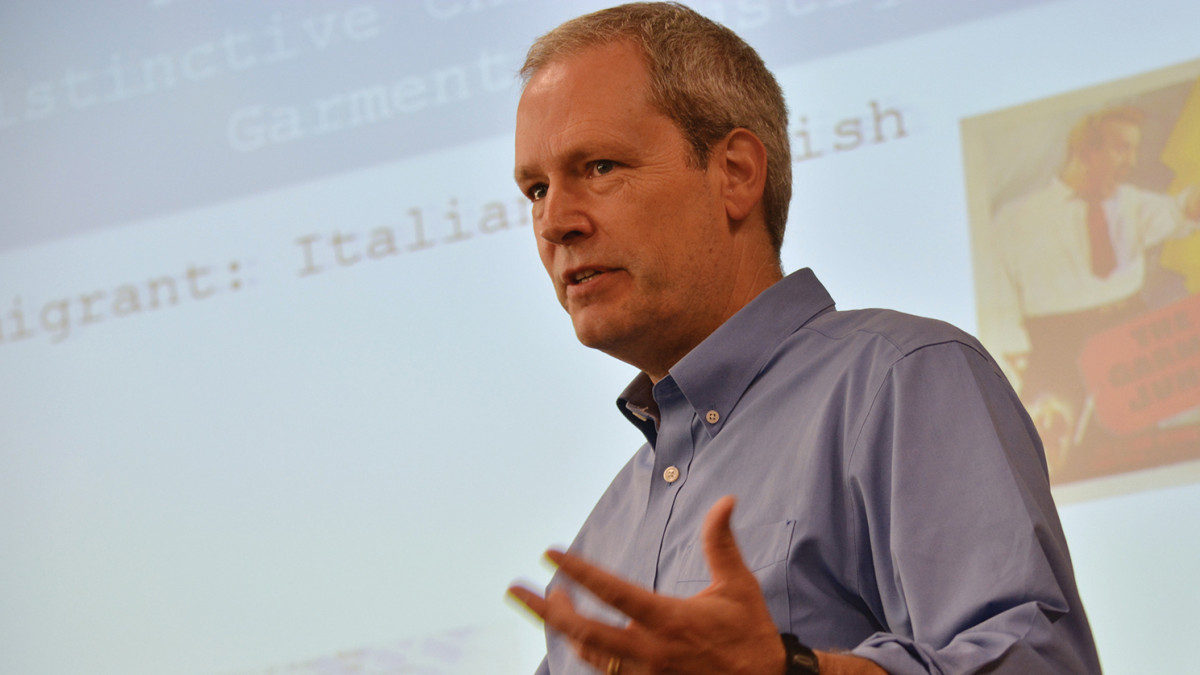 How to find Jimmy Hoffa
How to find Jimmy Hoffa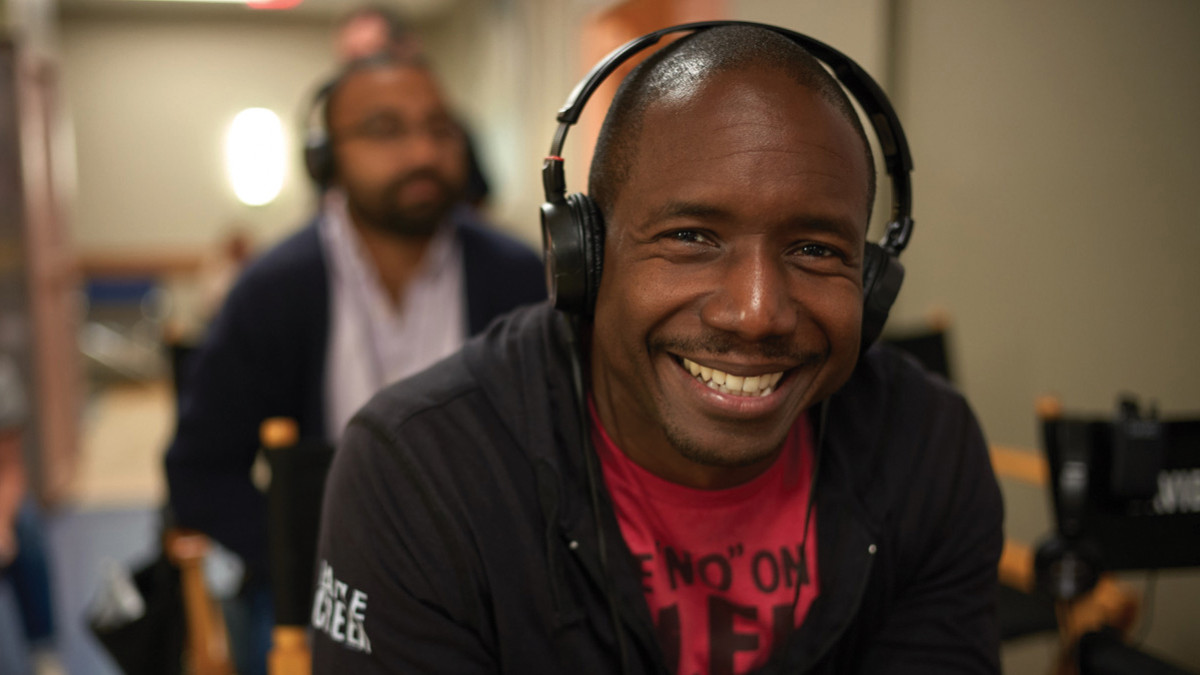 How to break into TV
How to break into TV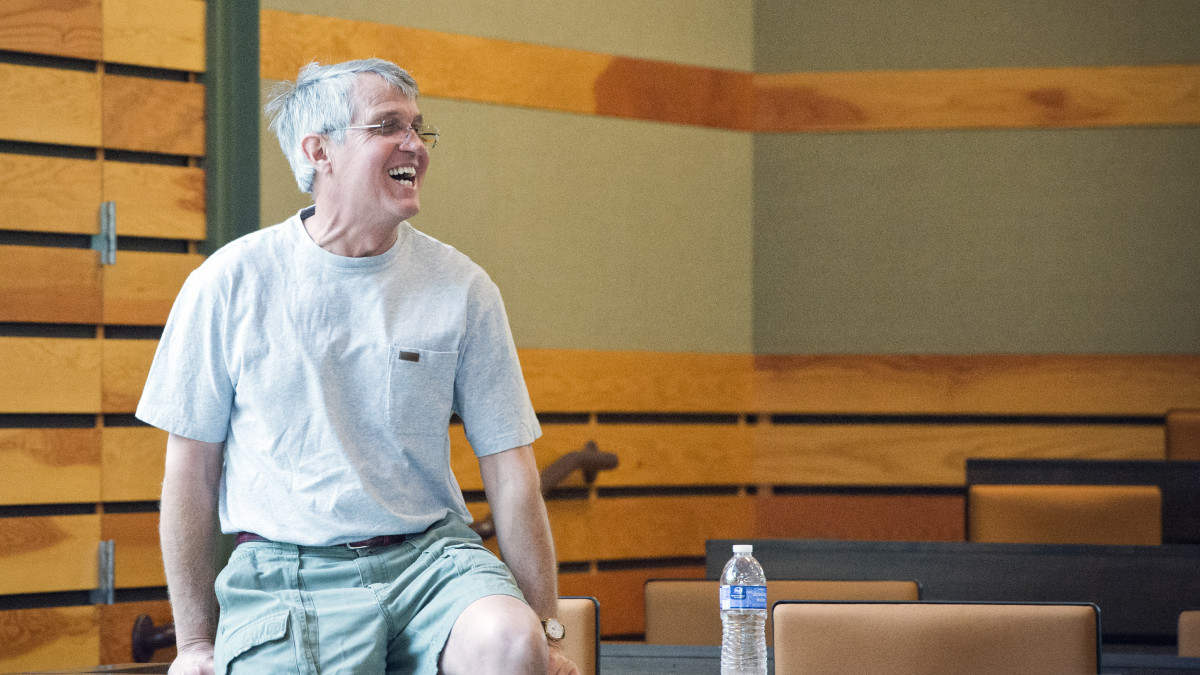 How to be happy
How to be happy  DePauw Magazine: The How-To Issue
DePauw Magazine: The How-To Issue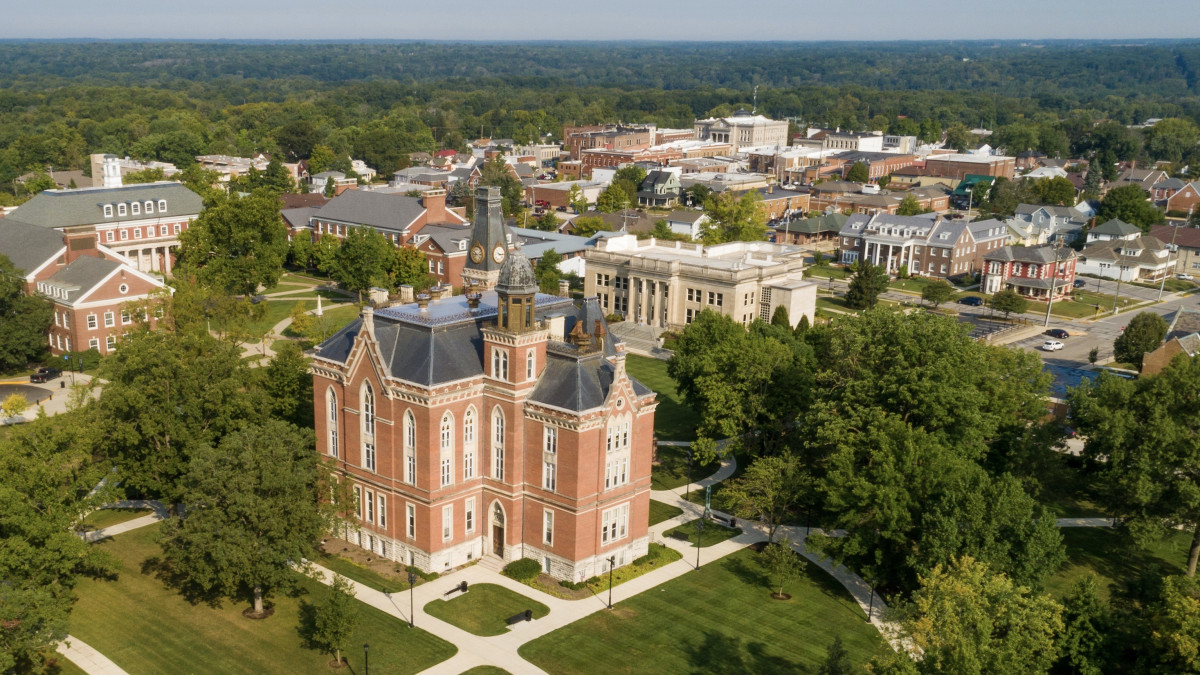 Town-gown: How to find common ground on common ground
Town-gown: How to find common ground on common ground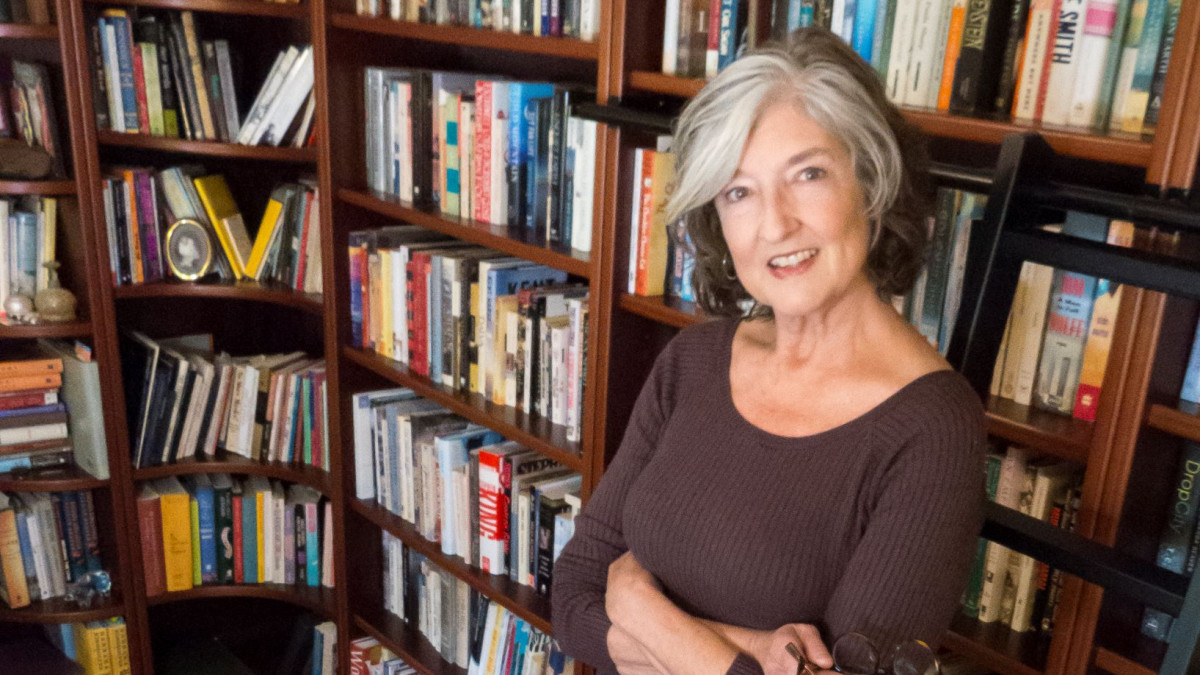 How to write a bestseller
How to write a bestseller How to save a life
How to save a life
DePauw Stories
A GATHERING PLACE FOR STORYTELLING ABOUT DEPAUW UNIVERSITY
Browse other stories
-
Athletics
-
Women's Swimming & Diving - DePauw Women Recognized as a Spring 2025 Scholar All-America Team; Three Tigers Recognized
-
Men's Swimming & Diving - DePauw Men Recognized as a Spring 2025 Scholar All-America Team
-
Men's Basketball - Tigers Earn NABC Team Academic Excellence Award; Four Student-Athletes Named to Honor Court
More Athletics
-
-
News
-
National grant supports DePauw’s commitment to civil dialogue
-
Outstanding scholars named to Spring 2025 Dean's List
-
Alumni News Roundup - June 6, 2025
More News
-
-
People & Profiles
-
11 alums make list of influential Hoosiers
-
DePauw welcomes Dr. Manal Shalaby as Fulbright Scholar-in-Residence
-
DePauw Names New Vice President for Communications and Strategy and Chief of Staff
More People & Profiles
-
-
Have a story idea?
Whether we are writing about the intellectual challenge of our classrooms, a campus life that builds leadership, incredible faculty achievements or the seemingly endless stories of alumni success, we think DePauw has some fun stories to tell.
-
Communications & Marketing
101 E. Seminary St.
Greencastle, IN, 46135-0037
communicate@depauw.eduNews and Media
-
News media: For help with a story, contact:
Bob Weaver, Senior Director of Communications.
bobweaver@depauw.edu.